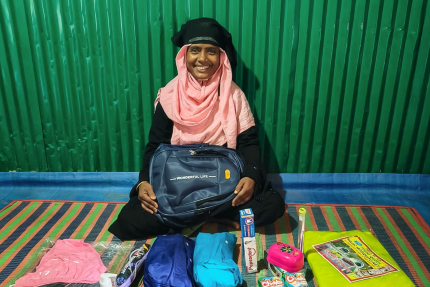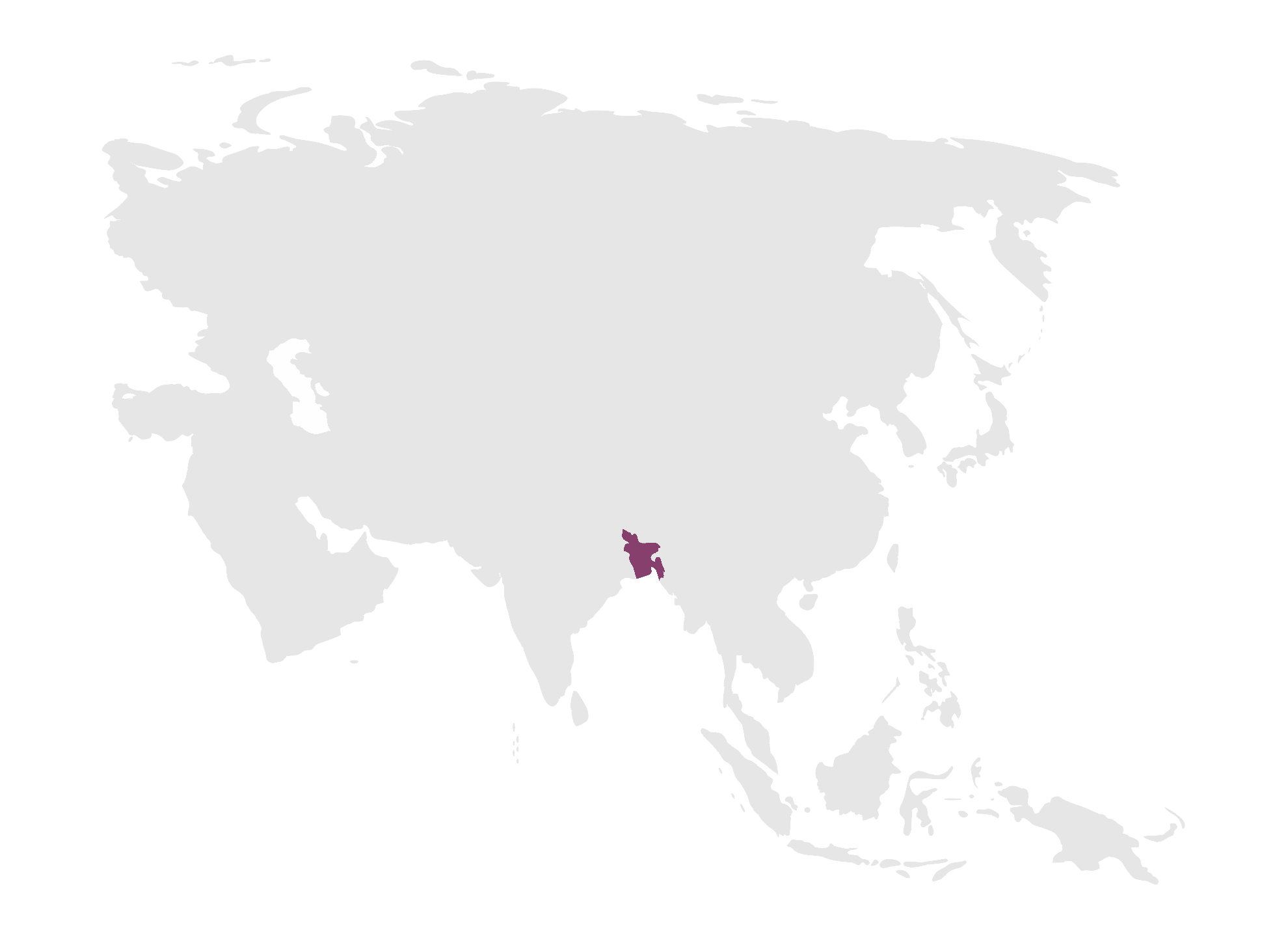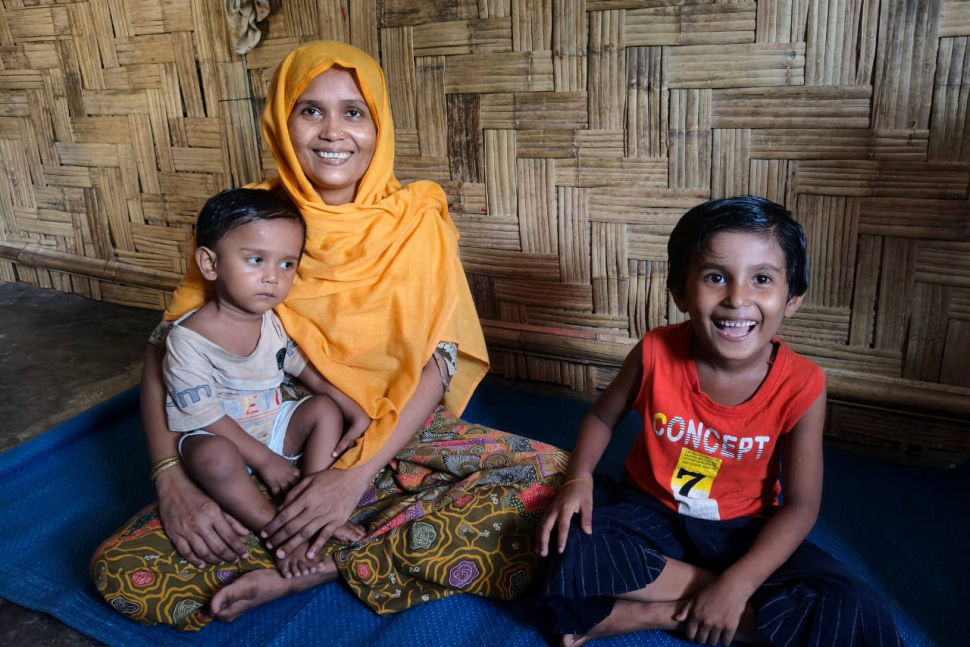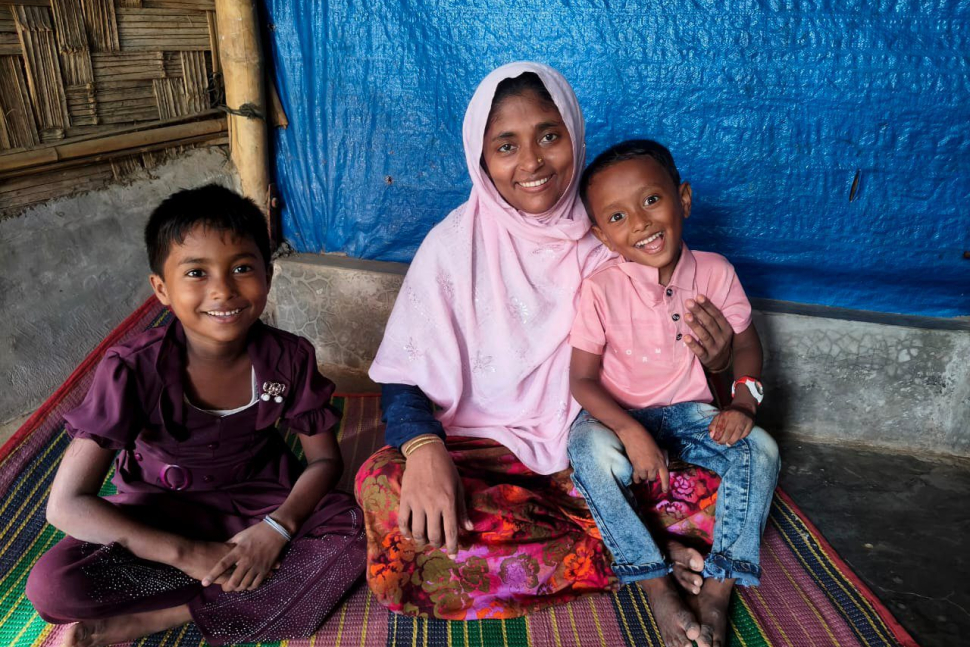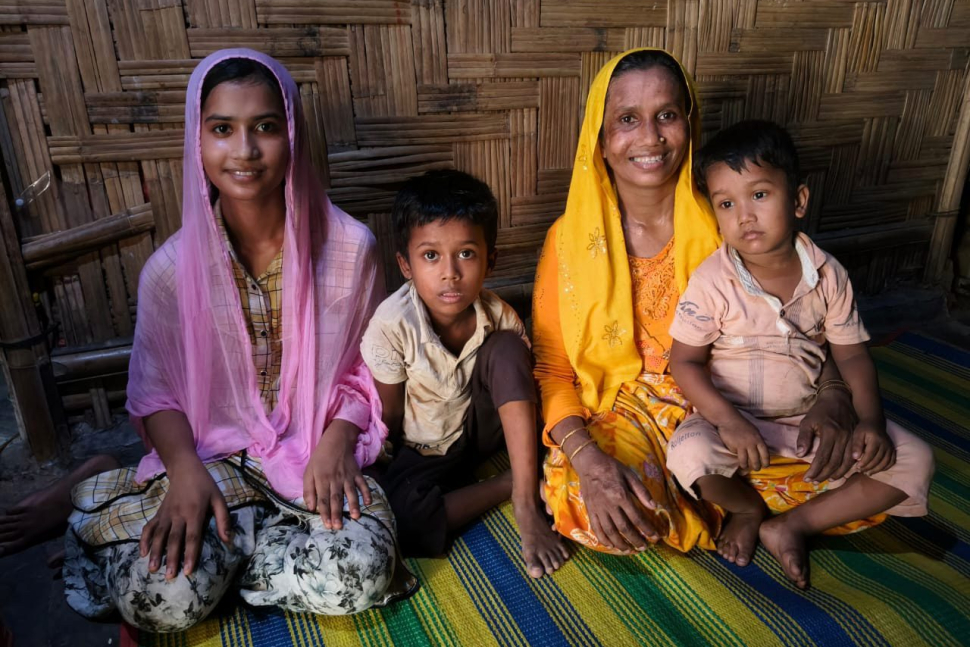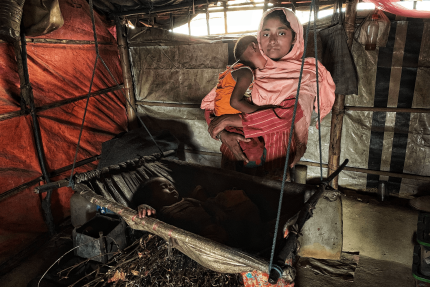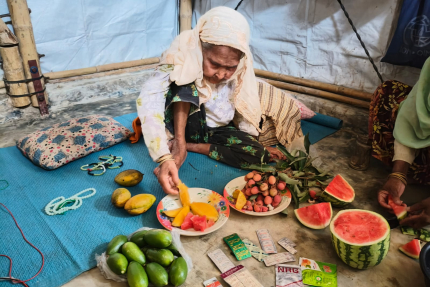When the world falls apart, a mother can be the last line of defense. In Myanmar, when everything around them was burning, Rohingya mothers became living shields, protecting their children. They took them in their arms and ran—across borders, across rivers—to Bangladesh. Through a true hell we can only watch on the news.
Today, as we celebrate Mother’s Day, we should remember that for many Rohingya women, motherhood is not flowers and breakfast in bed. It is a dignity-stripping daily life without hygiene products, without clean underwear, without a mosquito net to protect against malaria. It is a life where basic hygiene needs are a luxury, and staying healthy is a daily fight for survival.
Our project in Bangladesh is not a massive aid machine that can take these women out of the camps and give them a new life. We cannot give back the homes that no longer exist. We cannot turn back time and make history unfold differently. We cannot restore their basic rights. But there is still much we can do. We can help them regain their dignity.
For many organizations, helping the Rohingya is an unprofitable cause—too little media attention, too little recognition, too far from home. But this is not about profitability. It is about helping a person remain human.
Each Support Package for a Rohingya Woman contains items we in Poland buy without a second thought: soap for washing clothes and bathing, a toothbrush and toothpaste, clean underwear, a mosquito net to protect the whole family from malaria, an umbrella, disinfectants. And a practical carry bag so it all doesn’t get lost in a life that has to fit into a single shelter.
It may not sound like much, but in camp conditions each of these items can mean the difference between health and illness, between dignity and exclusion. The inability to maintain hygiene is not just uncomfortable—it is isolating, deepening the already difficult situation of women who have lost everything.
One package costs €27. If just three people with generous hearts come together, one Rohingya woman will receive her Support Package. By donating €9, alongside two other donors, you give a mother the chance for peace, health, and the knowledge that someone remembers her. That on a day when the world celebrates motherhood, she is seen too.
